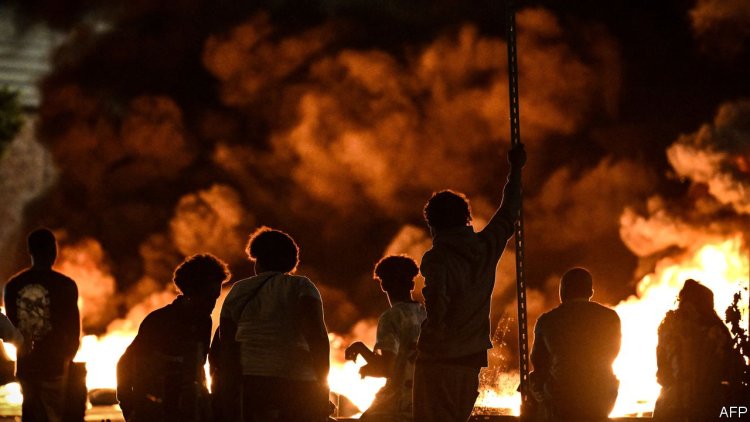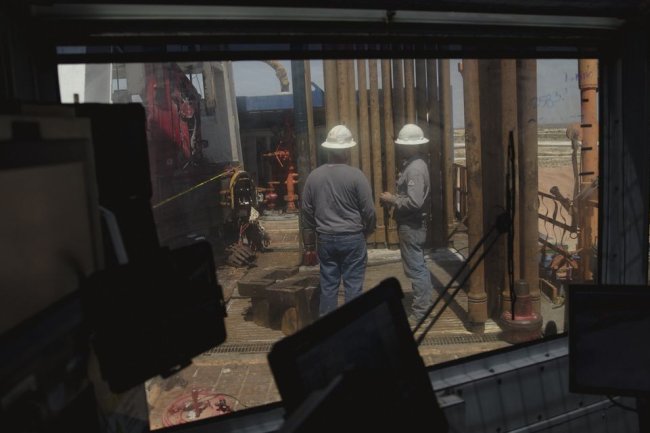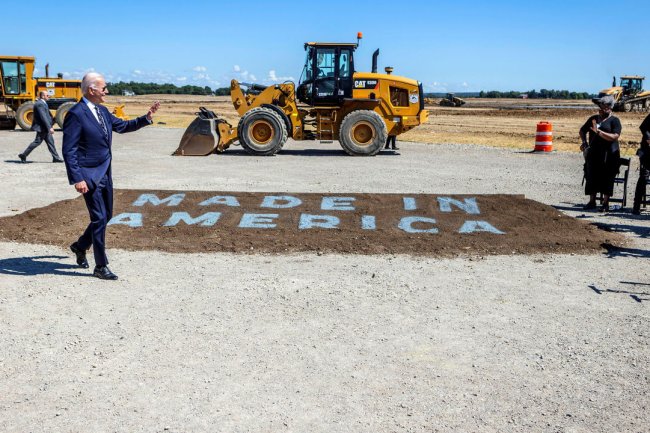Rioting in France presents a fresh political test for Emmanuel Macron
image: AFPTHE FRENCH president, Emmanuel Macron, is facing one of the toughest challenges yet of his second term, after rioting across the country continued for a fourth night. Despite deploying tens of thousands of police, the government has struggled to contain the violence. It first broke out after a traffic policeman on June 27th shot dead a teenager in a rented car who failed to obey orders to stop. Such is the tension that Mr Macron was forced to postpone a planned three-day state visit to Germany due to begin on July 2nd, which would have been the first by a French president for 23 years. That shows the political mire the riots have become for Mr Macron.The minority centrist government that Mr Macron runs is squeezed between a bloc on the far left and another on the nationalist hard right. He had just successfully emerged from a long political battle to enact an unpopular pension reform, which raises the legal minimum pension age from 62 years to 64. France had returned to polit


THE FRENCH president, Emmanuel Macron, is facing one of the toughest challenges yet of his second term, after rioting across the country continued for a fourth night. Despite deploying tens of thousands of police, the government has struggled to contain the violence. It first broke out after a traffic policeman on June 27th shot dead a teenager in a rented car who failed to obey orders to stop. Such is the tension that Mr Macron was forced to postpone a planned three-day state visit to Germany due to begin on July 2nd, which would have been the first by a French president for 23 years. That shows the political mire the riots have become for Mr Macron.
The minority centrist government that Mr Macron runs is squeezed between a bloc on the far left and another on the nationalist hard right. He had just successfully emerged from a long political battle to enact an unpopular pension reform, which raises the legal minimum pension age from 62 years to 64. France had returned to politics as normal. Now, the rioting has handed both opposition factions a chance to undermine his presidency once again.
On the far left, political leaders have blamed the rioting on poverty and government neglect in the high-rise multi-ethnic banlieues, which ring most French cities. Jean-Luc Mélenchon, the leader of Unsubmissive France, was slow to condemn the violence. On the hard right, Marine Le Pen, leader of the National Rally (formerly the National Front), has accused Mr Macron of a lax approach to law and order, and to immigration.
Mr Macron is no stranger to street protests. In 2018 he had to deal with widespread rioting, after the gilets jaunes (yellow jackets) protests hardened into violence. Earlier this year the president faced months of demonstrations and 14 one-day national strikes against his pension reform. Some of the marches turned violent, as rubbish bins and vehicles were torched and troublemakers infiltrated the protest marches. A state visit by Britain’s King Charles III was cancelled at the last minute in March, due to security concerns.
This time the violence is of a different order. The two previous waves of rioting under his presidency were directly linked to government policy. In the first case, an increase in the carbon tax on motor fuel. In the second, an increase in the retirement age. Today’s riots have less to do with Mr Macron, and more with the nature of policing and in particular the lethal use of firearms in traffic policing. In dozens of interviews with The Economist in Nanterre on June 29th, as people headed to join a protest in memory of Nahel, the 17-year-old shot dead, not one person spontaneously mentioned the president.
The immediate concern, rather, is the loosening in early 2017 of the rules governing the police use of firearms, and what seems to have been a subsequent increase in deaths. In 2022, 13 people were killed during traffic checks, a record. France does not collect ethnic statistics. But linked to this is an underlying anger, in particular in the banlieues, at the way residents feel they are treated by the police. “Young people say they get checked for who they are and not for what they are doing,” Fabien Truong, a sociologist who specialises in the banlieues, told Le Monde newspaper: “These experiences leave a lasting mark.” On June 30th the United Nations human rights office urged France “to seriously address the deep issues of racism and discrimination in law enforcement.”
As with previous riots, though, much of the current violence is being carried out by agitators or opportunists taking advantage of the disorder to loot and vandalise, often using social media and messaging apps to encourage revolt. Indeed most of the arson attacks in recent days have taken place against public services—town halls, libraries, schools, buses—in the banlieues themselves, prompting dismay among residents. The government has in recent years spent huge sums trying to renovate such neighbourhoods.
The immediate task now is to try to contain the violence. On June 29th Mr Macron cut short his attendance at a European summit in Brussels to return to Paris, where he held a crisis meeting. In 2005, the last time that France was convulsed by such widespread nightly rioting in cities across the country, it took three weeks and the introduction of a state of emergency to restore calm. At the moment, says the presidency, this option is not judged necessary. The government, rather, is trying to deploy what it calls a “graduated” use of law-and-order forces on the streets. It wants social-media platforms, including Snapchat and TikTok, to be more co-operative about identifying those inciting others to violence.
The politics of all this are not in Mr Macron’s favour. A right-wing police union was furious when the president described Nahel’s killing on the day it took place as “inexplicable, inexcusable”. In a formal address on June 30th designed to look authoritative, Ms Le Pen blamed the “drunkenness of solitary power” and called for the introduction of local curfews as well as, if necessary, a state of emergency. And she insisted on a link to “lax” immigration laws, even though Nahel was a French citizen who grew up in France.
Mr Macron has been careful to condemn the violence, and to support the police, as well as to express his emotion at the shooting. On June 29th the public prosecutor put the policeman who shot Nahel under formal investigation for “voluntary homicide”. Initial shock in France at the police shooting of Nahel, though, is turning to anger at the violence, vandalism and looting, as well as at the inability of the government to bring it under control. This plays to the law-and-order agenda on the political right and hard right. The longer the violence goes on, the greater the chances that the politician who benefits will be Ms Le Pen. ■
What's Your Reaction?

















